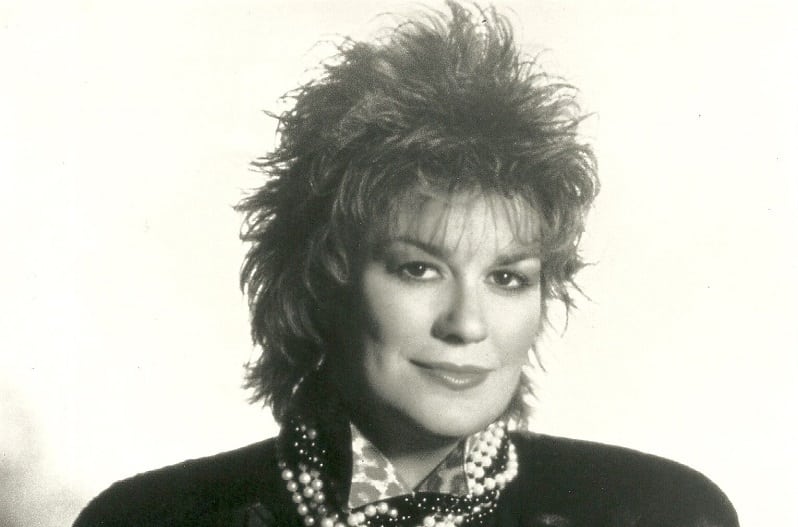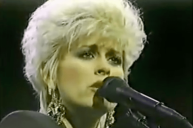Few albums in country music history better exemplify hard work paying off and talent rising to the top than K.T. Oslin's 1987 debut '80s Ladies. It's from the year Oslin turned 45, making her sudden rise to solo fame all the more miraculous in the unfairly image-driven field of country music. Its success proved that Kay Toinette Olsin had the songwriting prowess, sense of humor, and singing talent to overcome the steepest odds.
The Makings of a Songwriter
Born on May 15, 1942, in Crossett, Arkansas, Oslin lost her father at age 5. Her single mother soon relocated the family to Houston, Texas. This circumstance, paired with Oslin's own experiences as an adult, likely informed her songs about strong-willed, independent women.
In her college years, Oslin studied drama while performing in the same folk trio as David Jones and singer-songwriter legend Guy Clark. She later appeared as a backup vocalist on Clark's self-titled 1978 album. After her studies, she lived in New York as an aspiring actress. She soon began singing commercial jingles and appearing in advertisements. To fill in the creative gaps between auditions and gigs, she started dabbling in songwriting.
A Definitive '80s Lady
In the '80s, Oslin started chasing country stardom. A short-lived stint with Elektra Records as Kay T. Oslin netted the singles "Clean Your Own Tables" and "Younger Men (Are Startin' To Catch My Eye)." Despite a lack of chart success, those songs made her a sought-after songwriter, with her work covered by The Judds, Gail Davies, and Dottie West.
Alabama's producer Harold Shedd discovered a less-than-hidden talent a few years later when he caught Oslin at a songwriter showcase. He soon landed her a deal with RCA Nashville. The first fruits of that deal, '80s Ladies, became perhaps the biggest debut for a woman in country music since Bobbie Gentry's Ode to Billie Joe album and single usurped the Beatles on the pop charts 20 years prior.
The album's title track spoke to a whole generation of women about the social changes they'd witnessed—"We've been educated, we got liberated." It addressed shared experiences in such a natural way that its honesty won over fans and critics of all ages. A song about growing older, by a songwriter, feared to be too old for the mainstream, won a Grammy and even netted the first-ever CMA Song of the Year award for a woman artist.
The next two singles off '80s Ladies performed even better commercially. "Do Ya," a song about a married woman wondering if she's still got sex appeal, became the first of Oslin's four career number one hits. "I'll Always Come Back" was the final single off her debut album and her second chart-topper.
Guaranteed Hits
Read More: 80s Country Artists You Forgot You Loved
From there, Oslin went from unlikely star to guaranteed hit-maker. Sophomore album This Woman arrived in 1988 and netted three more top-five singles, including the number one hit "Hold Me."
Along with the honesty craved by country music fans, Oslin brought a winning sense of humor. The final album of her late '80s and early '90s run of success with RCA Records, 1990's Love in a Small Town, includes the number one single "Come Next Monday." Its music video cast her in an over-the-top parody of The Bride of Frankenstein.
Following the release of 1993's cleverly-titled greatest hits compilation Songs From an Aging Sex Bomb, Oslin briefly retired from singing to pursue acting. That opened the door for her supporting role in the country-themed River Phoenix movie The Thing Called Love.
In spite of huge setbacks, including coronary artery bypass surgery in 1995, Oslin cut a handful of albums in the years since her mainstream peak: 1996's My Roots Are Showing, 2001's Live Close By, Visit Often and 2015's Simply.
An Undeniably Well-Rounded Talent
Oslin was more than just another talent with the right country songs at the right time. As Mary A. Bufwack and Robert K. Oermann wrote in Finding Her Voice: The Saga of Women in Country Music: "K.T. Oslin did it with sass, smarts and savvy. She charmed audiences with her heart-of-gold manner, self-mocking wisecracks, brassy attitude, keen wit and joie de vivre" (522). It's these qualities that allowed her to go from off-Broadway acting to the Ryman or Lower Broadway without compromise.




